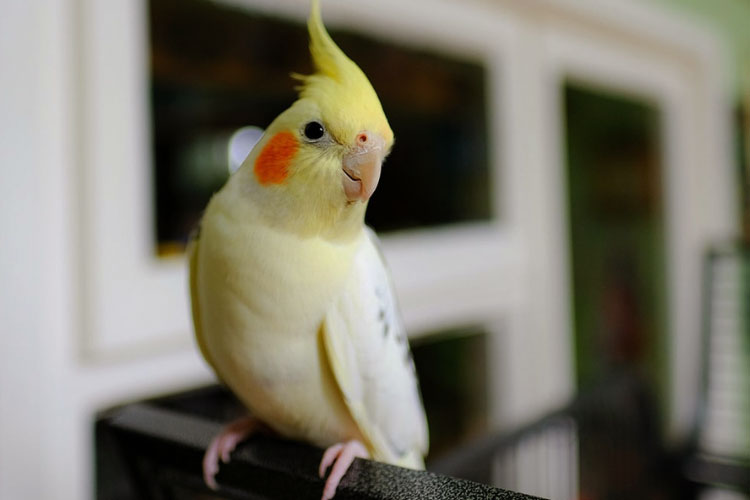Cockatiels are habitable in dry and hot environments. The fluctuation of weather may affect the health and living experience of most birds. In order to keep them healthy, proper precautions must be taken.
So during winter, do cockatiels get cold? Yes, cockatiels are highly affected by low temperatures during winter. The ideal temperature for a cockatiel is within 18 – 30 °C. Even a slight drop in temperature is inconvenient for them. Thus, lack of energy, shivering, and puffing of feathers are three main signs of a cockatiel suffering from cold.
As now you know how deeply cockatiels are affected by cold temperatures, you must be wondering how to keep cockatiels warm in winter. This guide has been designed for you to keep your feathered friend healthy, cozy, and warm.
How to Keep Cockatiels Warm in Winter?
Temperature below 40 degrees Fahrenheit makes cockatiels uncomfortable. Such temperature is a warning sign, and proper precautions must be taken. The odds are high for the bird to catch sickness if no action is taken. Hence, the best precautions to keep your cockatiel warm have been listed below:
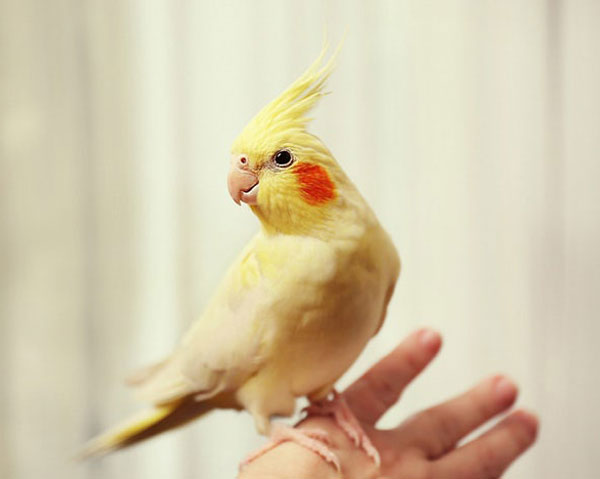
Installing cage covers
The cold wind during winter is enough to affect tropical birds with colorful feathers who are habituated to warm temperatures. Adding cage covers, especially during the night time will secure the health of your cockatiel and provide them with a better sleeping experience.
Special winter-themed covers are also available specially designed for this purpose. They are great for cockatiels and similar types of birds.
Adding thermo-perch
Have you noticed your cockatiel curling up its feet lately? If yes, this is a sign that the bird is getting cold, especially at its bottom. In this case, buying a thermos perch and installing it in the cage would be the perfect action. It helps the cockatiel to stay warm and not get uncomfortable during cold temperatures.
The thermo-perch keeps the bird’s body warm through the moving blood and tissues from its legs and feet.
Using air humidifier
It’s a good idea to use an air humidifier to keep your cockatiels dry. When people inquire about how to keep cockatiels warm, we frequently overlook the fact that the dry air is actually a significant issue for your bird.
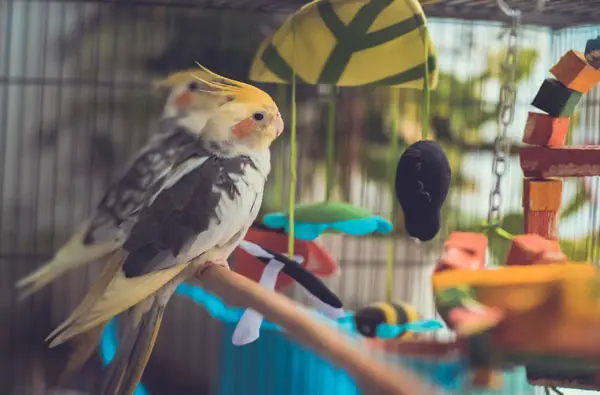
At this point, a humidifier keeps the air from being too dry and maintains a warm interior temperature. This also helps the cockatiels to be safe from bloody noses, cracked dry lips, and sinuses during winter.
Installing heat lamps/heater
When it comes to severe cold weather, the best option to go for is a heater. However, it is important to monitor the heat from time to time because too much heat may also affect the health of the bird. Heat lamps are quite similar to heaters and can be counted as a lite version of heaters.
Besides, heat lamps are highly preferable for birds like cockatiels. The heaters work as plug-in, portable warmers that can safely warm a bird if it is underneath or close by. They are comparable to space heaters. The heater and heat lamps might provide some nice heat for a chilled bird.
Proper and extra meals at night
Not only cockatiel but most animals keep their body warm by eating warm food during cold nights. Shelter from the heater, cage cover, and air humidifier is helpful but providing extra meals at night will work magically. This way the cockatiel will feel full and their bodies will have a warm and diverse diet, which will lower body cold.
What to Feed Cockatiels When They Are Cold?
A proper diet during winter along with simple exercise will ensure good health for your cockatiel. It is also important to be ensured about the food that the cockatiel should not consume during winter. Let’s find out the do’s and don’ts regarding the winter diet for your cockatiel:
Seeds such as black-oil sunflower, and nyjer thistle safflower are ideal for birds like cockatiels during winter. A combination of such seeds can be a great diet for your cockatiel to stay warm and healthy if the bird has felt cold lately.
Likewise, a good mixed meal should contain a large amount of cracked corn, sunflower seeds, and proso millet, to keep your bird healthy. Other than seeds, there is food such as suet, mealworms, and bird-friendly fruits, which you can go to during winter. Bird-friendly fruits including sliced citrus, grapes, banana, and apples are to be considered as well.
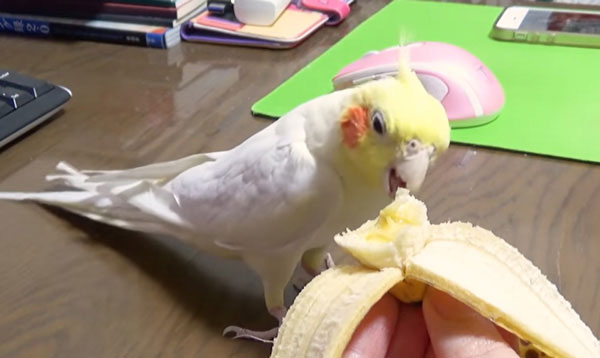
However, bread and milk are two of the biggest “don’ts” during winter. You must not even feed them bread and milk separately. Bread holds very low nutritional value for the birds but makes them full.
When a cockatiel is full, it won’t eat anything nutritional such as seeds. On the other hand, milk leads to sickness including diarrhea and dehydration for cockatiels during winter.
Does High Temperature Affect Your Cockatiel Too?
It is known that cockatiel is habituated to warmer climates and temperatures. Definitely, they are resistant to high heat compared to extremely cold temperatures.
Nonetheless, it is still important to be aware of the heat that is not too much because high heat can also affect cockatiel’s health. This is why it is important to monitor the heat while having a heater on near the cockatiel’s cage.
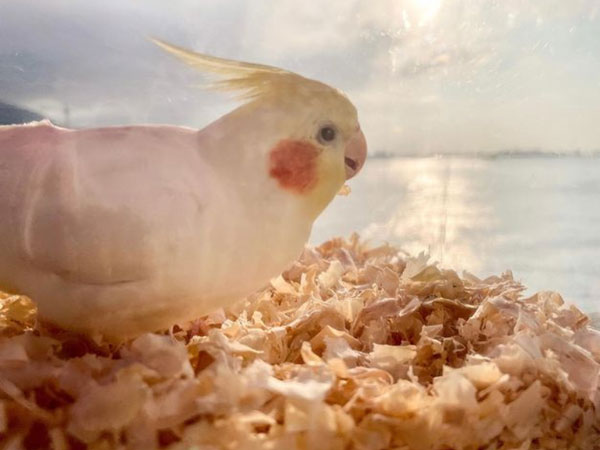
Even when the weather is nice outside, you should never leave a cockatiel in a car. Similarly, don’t put the cage in direct sunlight if you move it outside into the patio in the spring or summer. She could risk overheating, dehydration, and even death if she does this.
How to Know if Your Cockatiel Is Cold?
Figuring out that your cockatiel is cold can be tough at times. As mentioned before, lack of energy and shivering are two clear signs. Sadly, cockatiels are modest birds and they don’t show their weakness until it is unbearable. So you should continue to remember the fundamental guidelines.
Besides, bear in mind that your cockatiel’s feathers swelling out is one indication. Thus, they will try to cuddle together for warmth by rolling themselves into a little ball. Look closely at this activity because fluffing feathers might signify several things. They frequently do this even when they are not yet asleep, though not quite as spectacularly.
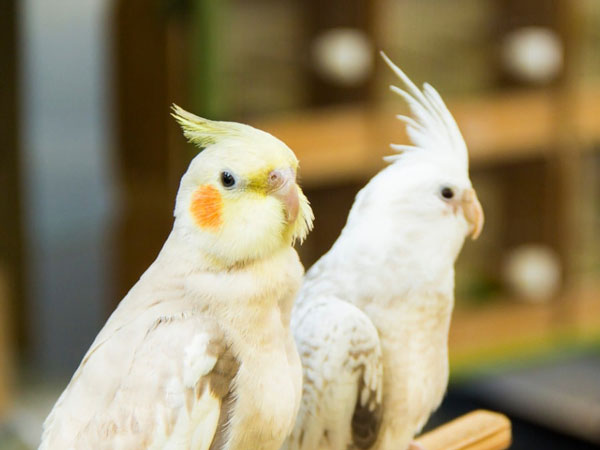
Additionally, they frequently lower their heads while nuzzling their chests and tucking their beaks under their wings. The most obvious indicator is if you observe your cockatiel trembling because they may even shiver.
When to Take Your Cockatiel to a Vet?
Sometimes the sickness led by cold can become extreme. In such extreme situations going to a vet is crucial. There are a few signs to find out that it is too late, they have been mentioned below:
- Change of tone
- Sneezing
- Abnormal growth of feather
- Bleeding and vomiting
- Eye and nose discharge
To prevent such sickness, the owner needs to take proper precautions for the cockatiel during winter. If it is too late, the wisest thing to do is to take the bird to a vet for medical and minor surgical assistance.
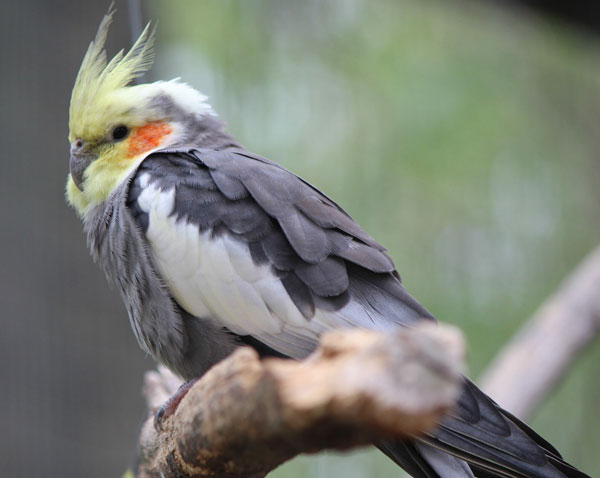
FAQs
As now you know everything there is to know about your Cockatiel catching a cold, here are answers to some frequently asked questions. If you have more questions, we hope this answers your problem:
Yes, nuts are full of nutrients that can help your bird stay warm and nutritious during winter. However, never feed your cockatiel peanut because it is highly forbidden for birds similar to cockatiels.
Sleeping excessively may at times mean to lack of energy. It is important to feed the bird a proper diet including high nutrition during such problems.
Yes, most cockatiels can survive during cold temperatures. Temperature below 40 degrees Fahrenheit may be uncomfortable but they can survive. Nevertheless, it is still important to take proper precautions to ensure good health.
Key Takeaways
Do cockatiels get cold? How to keep cockatiels warm in winter? In short, cockatiels are strong, modest, and friendly summer birds that need special care during cold temperatures. There are various ways to take care of your cockatiel, which may include diet change, exercise, and the addition of more equipment for your cockatiel.
At times it might get confusing to understand if your cockatiel is getting cold. Understanding, signs, and reactions are important during such circumstances. Providing a combination of all kinds of care is a must for cockatiels during winter.
